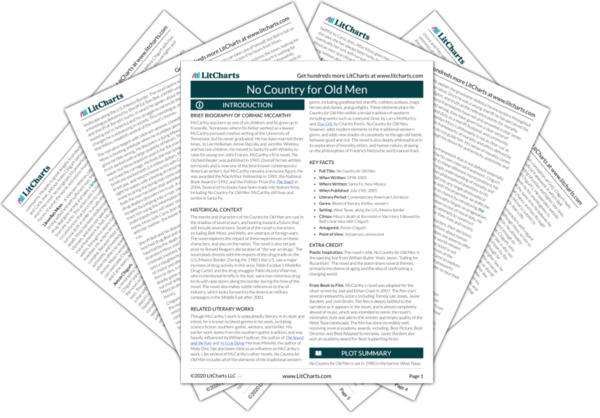LitCharts assigns a color and icon to each theme in No Country for Old Men, which you can use to track the themes throughout the work.
Philosophy, Morality, and Ethics
Fate, Chance, and Free Will
Changing Times: Past, Present, and Future
Corruption, Greed, and Power
